
Code: 09439089
New General Biographical Dictionary, Vol. 4 of 12 (Classic Reprint)
by Hugh James Rose
Excerpt from A New General Biographical Dictionary, Vol. 4 of 12 Beethoven, (Lewis von,) one of the finest musical geniuses that ever existed, but so eccentric in bis habits, that the world was long inclined to cull him a madma ... more
- Language:
 English
English - Binding: Paperback
- Number of pages: 520
Publisher: Forgotten Books, 2015
- More about this

27.48 €
Availability:
50/50 We think title might be available. Upon your order we will do our best to get it within 6 weeks.
We think title might be available. Upon your order we will do our best to get it within 6 weeks.We search the world
You might also like
-

Moonlight Masquerade
9.02 € -21 % -

Music in Service
50.10 € -2 % -

Moodscapes
39.76 € -

History of the 3d, 7th, 8th and 12th Kentucky, C. S. A.
17.74 € -2 % -

Bullying: The Solution That Works for Parents and Teachers
13.99 € -1 % -

Biografie di Galileo
8.61 € -1 % -

Aria di giugno
10.13 € -2 %
Give this book as a present today
- Order book and choose Gift Order.
- We will send you book gift voucher at once. You can give it out to anyone.
- Book will be send to donee, nothing more to care about.
Availability alert
Enter your e-mail address and once book will be available,
we will send you a message. It's that simple.
More about New General Biographical Dictionary, Vol. 4 of 12 (Classic Reprint)
You get 69 loyalty points
 Book synopsis
Book synopsis
Excerpt from A New General Biographical Dictionary, Vol. 4 of 12 Beethoven, (Lewis von,) one of the finest musical geniuses that ever existed, but so eccentric in bis habits, that the world was long inclined to cull him a madman. He was bom on the 17th of December, 1770, at Bonn, on the Rhine, his father occupying the situation of tenor at the electoral chapel. It has, however, been said, that his father was Frederic William II. of Prussia, as if none but a royal descent was adequate to his genius. His faculties developed themselves so early, that his father began to instruct him when he was only five years old, but soon found him above his lessons. Hence he gave him over to Van der Enden, one of the best pianists of that time. Subsequently, Neefe, by orders of the elector Maximilian, became Beethoven's master. He initiated the extraordinary child into the works of Sebastian Bach and Handel, which ever excited his reverence and veneration. At the age of eight (so it is said, at least), he excelled as a violin player; and at thirteen, some of his compositions were printed. But it was improvisation and the fantasia libera, in which he shone most brightly, and which he first exhibited before the learned composer, Junker, at Cologne, pouring forth a superabundance of rich and brilliant ideas. It was in this sort of boundless ramble, as it were, tlial his mind found nourishment and scope. In composition, he continually violated the rules of harmony then received. This caused an opposition that often harassed him, and probably iniured his temper. The talent) which he inowed on the organ, induced his patron, the elector, to send him in 1792 to Vienna, to perfect under Haydn his theoretic and practical acquirements. Just in the same way as Corneille had not been able to understand Racine, Uaydn was mistaken in Beethoven, whom he thought "not destined to be a musical composer and when asked his opinion about him, said drily, "he plays well on the piano." Mozart, however, had shown more penetration. When Beethoven had previously made a visit to Vicuna, in 1790, and had executed a fantasia libera before him, he cautiously said at first nothing, thinking that it had been previously practised and played by heart. But as Beethoven, suspecting this, requested Mozart to give niin some theme, and receiving one of a very complicated nature, he followed it extempore, during three-quarters of an hour. Holding his breath, Mozart slipped on tip-toe into the next room, and said to some friends there, "Mark well this young man, you will hear more of him." When Haydn went to England, he left Beethoven under the care of Albrechtsberger, from whom he received important lessons in counterpoint, as he gratefully acknowledged in his posthumous Studien. His reputation as a pianist and composer began now to be established, but it was his fantasie libera which carried away every hearer. At that period he also learnt much of ancient and modem languages, history, and the belles-lettres, his fife being generally spent alone. A musician, however, named Wolff (now forgotten) competed then with him as a player; yet, although rivals, they bore a sincere friendship toward.) each other. The crowd of amateurs became divided; prince Lichnowsky giving the palm to Beethoven, baron Wetzlar to Wolff. About the Publisher Forgotten Books publishes hundreds of thousands of rare and classic books. Find more at www.forgottenbooks.com
 Book details
Book details
Book category Books in English Biography & True Stories Biography: general
27.48 €
- Full title: New General Biographical Dictionary, Vol. 4 of 12 (Classic Reprint)
- Author: Hugh James Rose
- Language:
 English
English - Binding: Paperback
- Number of pages: 520
- EAN: 9781330429914
- ISBN: 9781330429914
- ID: 09439089
- Publisher: Forgotten Books
- Weight: 689 g
- Dimensions: 229 × 152 × 27 mm
- Date of publishing: 02. June 2015
Trending among others
-

Tuesdays with Morrie
9.53 € -9 % -

Complete Books of Charles Fort
37.42 € -26 % -

Men We Became
17.13 € -18 % -

Twirling Naked in the Streets and No One Noticed
15.92 € -1 % -
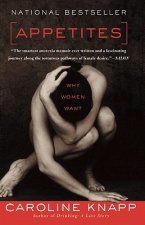
Appetites
14.39 € -21 % -

Titan
23.83 € -1 % -

American Prometheus
19.97 € -

Sam Walton
9.42 € -17 % -

And I Don't Want to Live This Life
14.09 € -23 % -

My Family and Other Animals
9.22 € -20 % -

The Other Side of the Coin: The Queen, the Dresser and the Wardrobe
24.64 € -22 % -

Man In the Music
15.21 € -21 % -

Underland
10.95 € -23 % -

NOT DEAD NOT FOR SALE
14.39 € -25 % -
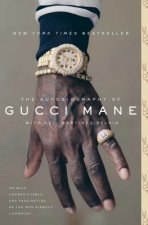
Autobiography of Gucci Mane
17.95 € -

I Feel Bad About My Neck
10.34 € -28 % -

My Mother Laughs
15.31 € -28 % -
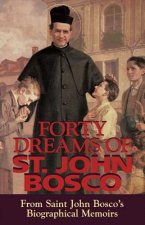
Forty Dreams of St. John Bosco
17.03 € -19 % -

My Life with the Chimpanzees
7.90 € -22 % -

Secret Life of Salvador Dali
20.68 € -20 % -

Gifted Hands
15.31 € -28 % -
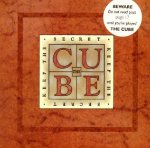
CUBE
14.60 € -10 % -
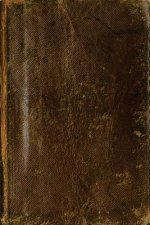
Grail Diary
40.67 € -

When You Are Engulfed In Flames
11.66 € -21 % -

Bookseller Of Kabul
13.08 € -17 % -
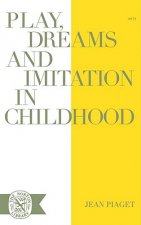
Play, Dreams, and Imitation in Childhood
20.79 € -16 % -

Grace and Grit
16.83 € -20 % -

Being Here Is Everything - The Life of Paula Modersohn-Becker
15.21 € -21 % -

I Know Better Now
23.93 € -22 % -
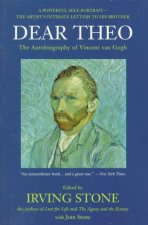
Dear Theo
14.19 € -22 % -

Arctic Adventure
27.79 € -

Gilbert Stuart: Master Portrait Painter
28.09 € -

Persepolis I & II
11.15 € -22 % -

Inspire
11.35 € -28 % -

Bad as I Wanna Be
8.71 € -16 % -

The Diaries of Franz Kafka
16.32 € -23 % -

Becoming Myself
14.90 € -24 % -

Steve Jobs
29.92 € -23 % -

Very Easy Death
14.80 € -3 % -
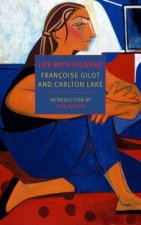
Life With Picasso
15.21 € -24 % -

Midnight Fishermen
12.37 € -28 % -

Wild Swans
13.38 € -22 % -

Never Grow Up
10.24 € -23 % -
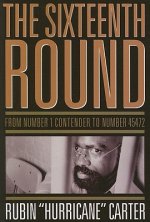
Sixteenth Round
14.80 € -18 % -

When I Stop Talking, You'll Know I'm Dead
14.29 € -32 % -

Real James Herriot
11.35 € -28 % -

Wolf of Wall Street
16.73 € -21 % -

Cicero
15.61 € -32 % -

Lightning and the Sun
31.94 €
Collection points Bratislava a 2642 dalších
Copyright ©2008-24 najlacnejsie-knihy.sk All rights reservedPrivacyCookies


 15549 collection points
15549 collection points Delivery 2.99 €
Delivery 2.99 € 02/210 210 99 (8-15.30h)
02/210 210 99 (8-15.30h)